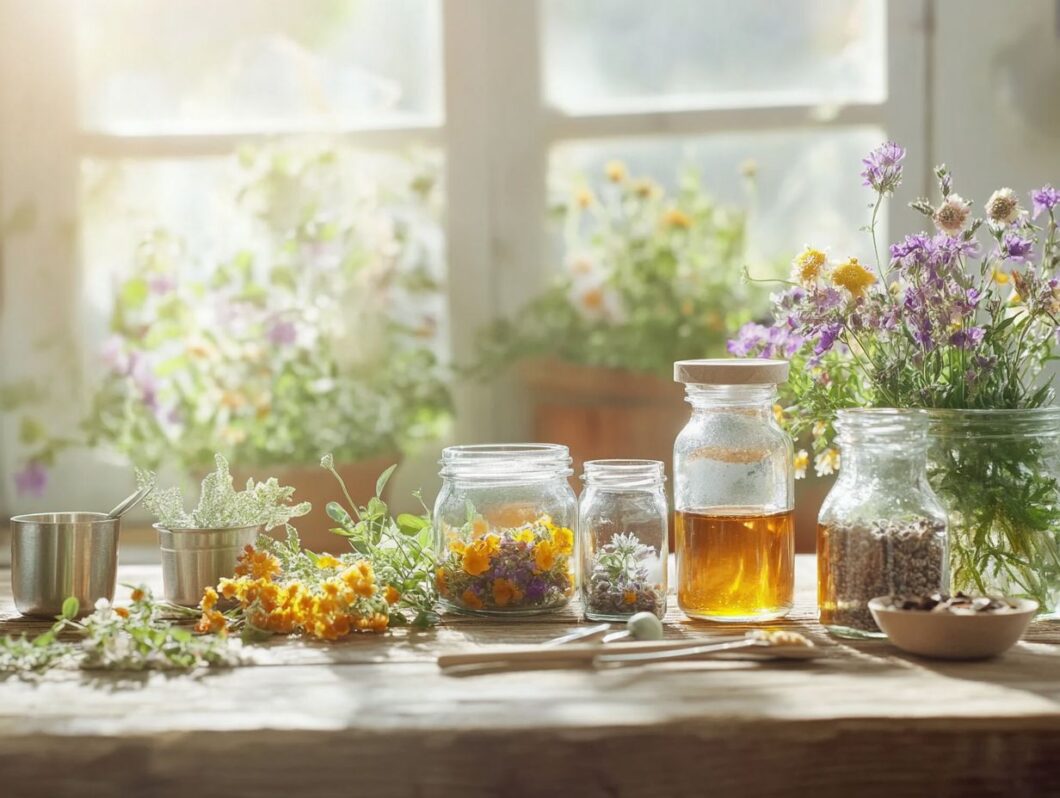Creating my own beauty products at home has become an incredibly rewarding endeavor. It allows me to tailor each product to my specific needs while gaining control over the ingredients, ensuring they are organic and free from harmful chemicals.
This guide outlines essential ingredients for DIY beauty recipes, provides easy-to-follow recipes for face, hair, and body care, and offers valuable tips on effectively storing and using homemade products.
I am prepared to embrace a more natural approach to beauty.
Key Takeaways:
Benefits of Making Your Own Beauty Products
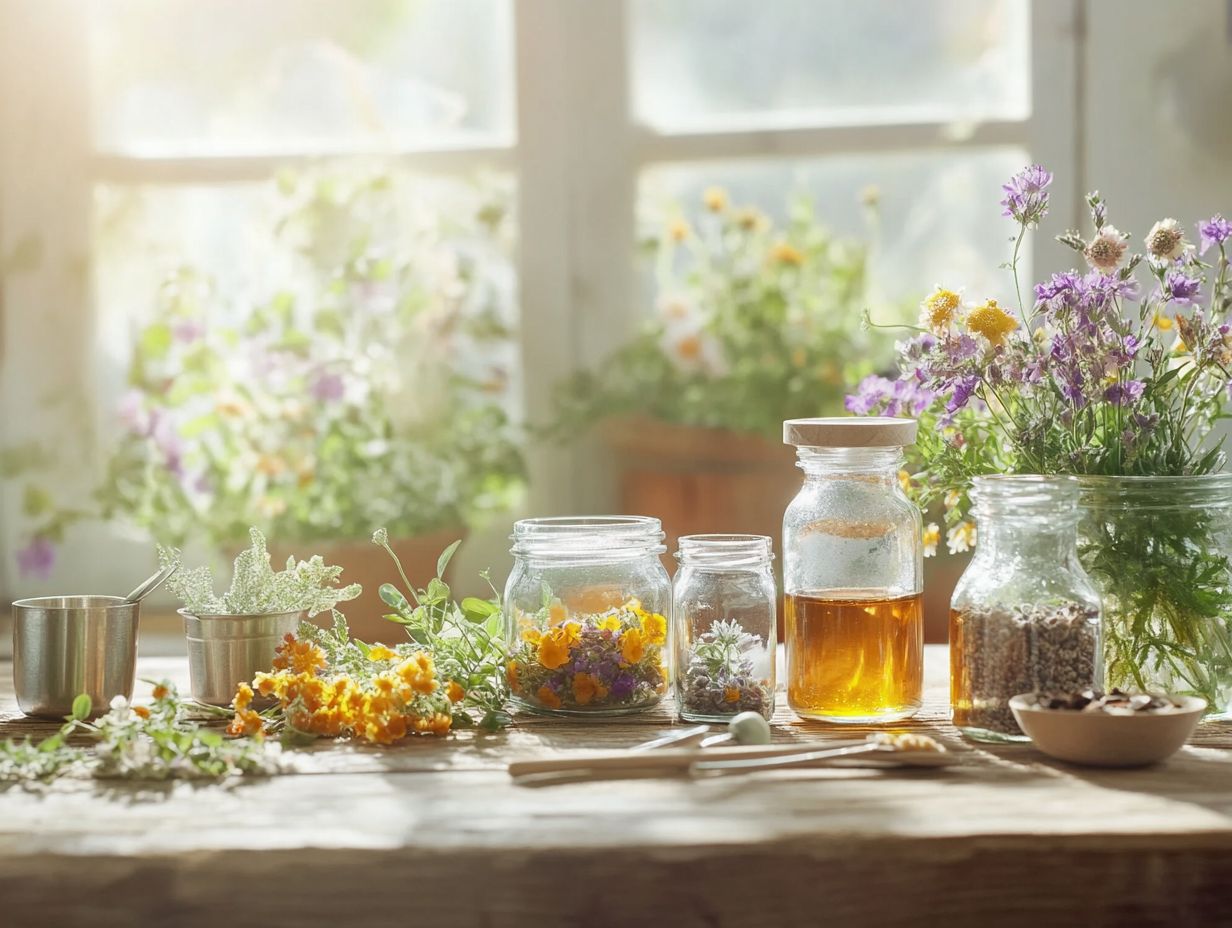
Creating my own beauty products offers a range of benefits that go beyond aesthetics, touching on health, budget savings, and environmental responsibility. By choosing DIY beauty solutions, I can customize formulations to meet my unique skin health needs, utilize ingredients from my kitchen to craft effective natural skincare recipes, and eliminate harmful chemicals often found in commercial products.
This approach give the power tos me to integrate wellness into my beauty routine, prioritize non-toxic alternatives, and contribute to a sustainable lifestyle by reducing the packaging waste associated with store-bought cosmetics.
Embracing the art of DIY beauty not only enhances my personal care but also encourages mindfulness in ingredient selection. Ingredients such as coconut oil, honey, and essential oils are readily available and possess numerous skin-nourishing properties. They offer hydration, anti-inflammatory benefits, and antimicrobial effects, making them ideal for addressing various skin concerns.
By crafting my own products, I can significantly reduce costs, as purchasing raw materials in bulk leads to long-term savings.
This eco-friendly practice decreases my reliance on harmful plastics and supports a greener planet, aligning with the growing movement toward sustainable living and conscious consumerism.
Essential Ingredients for DIY Organic Beauty Recipes
The essential ingredients for DIY organic beauty recipes are not only readily accessible but also rich in nutrients that promote skin radiance and healing.
Common kitchen staples like coconut oil, cacao butter, and honey serve as versatile bases for a variety of homemade beauty products. By incorporating essential oils and other natural alternatives into my formulations, I can enhance their effectiveness while maintaining a non-toxic, health-supportive approach to beauty care.
As a beauty editor, I encourage exploration of the myriad DIY skincare possibilities that these organic ingredients offer, turning a regular beauty routine into a truly luxurious experience.
Common Ingredients and Their Uses
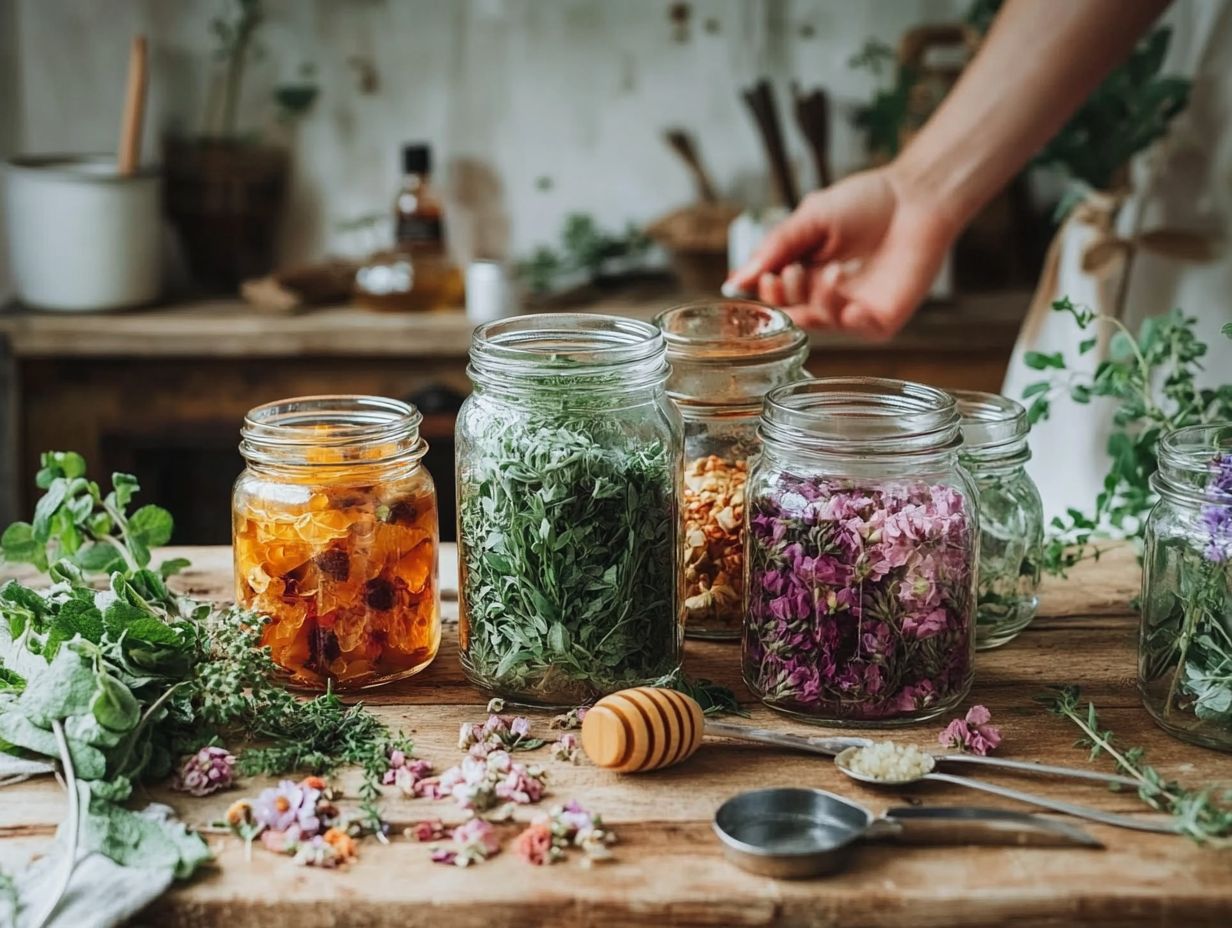
Common ingredients found in my kitchen pantry often serve as the foundation for effective DIY beauty recipes tailored to various skin types and concerns. For example, I find that cacao butter and coconut oil are exceptional for their moisturizing properties, while sweet almond oil and vanilla extract not only nourish the skin but also provide delightful fragrances.
I use organic cornstarch as a natural thickening agent, and honey acts as a powerful humectant, drawing moisture into the skin. By incorporating ingredients like turmeric, yogurt, and avocado, I can create skincare recipes that deliver anti-inflammatory and healing benefits.
Along with these staples, I appreciate the soothing qualities of oats, which can calm irritated skin, making them ideal for sensitive complexions. Olive oil, rich in antioxidants, serves as an excellent natural cleanser, promoting a radiant glow and enhancing skin elasticity.
Apple cider vinegar is another favorite of mine; it balances the skin’s pH levels and functions as a formidable toner that helps reduce blemishes. Essential oils like tea tree and lavender not only add pleasant scents but also provide antibacterial properties to combat acne.
By exploring the versatility of these pantry gems, I can easily whip up personalized beauty concoctions that promote health and vitality for my skin and hair.
Recipes for Face Care
Creating effective skincare recipes for face care is both fulfilling and an excellent way to ensure that my skin receives the most beneficial ingredients.
From honey face masks that nourish and hydrate to olive oil masks that provide deep moisturization, DIY skincare allows me to tailor treatments to my skin’s specific needs.
Incorporating yogurt face masks can further enhance my skincare routine, offering probiotic benefits that promote healthy skin.
With a touch of creativity and some essential ingredients from my kitchen, I can easily prepare face care solutions that rejuvenate and elevate my skin’s radiance.
Facial Cleansers, Masks, and Serums
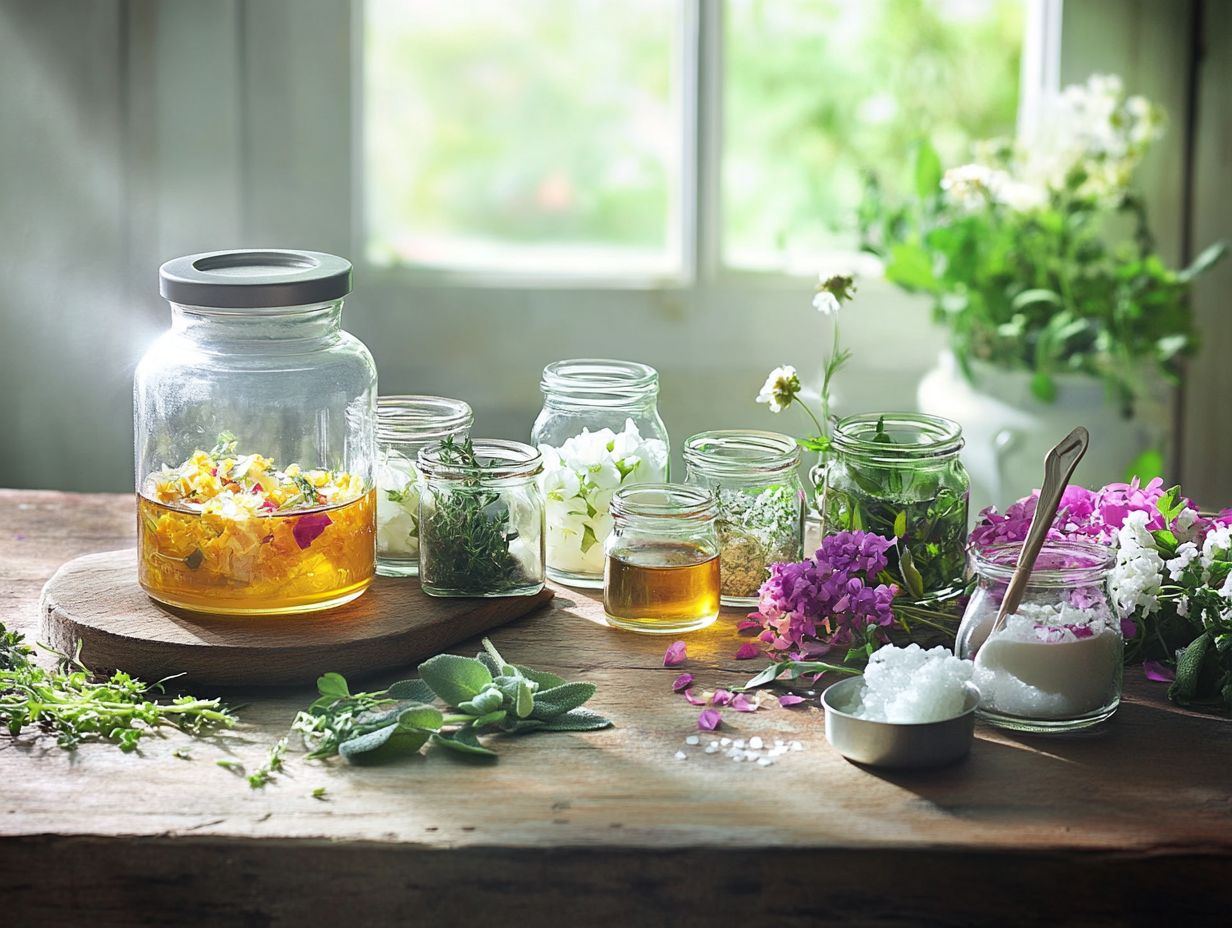
Facial cleansers, masks, and serums made from kitchen ingredients can significantly enhance my skincare routine by providing targeted treatments for various concerns. For instance, I find that a DIY face scrub featuring natural exfoliants like sugar, combined with honey and essential oils, invigorates my skin while also promoting protection against infections.
Masks can be customized to address specific needs such as hydration, oil control, or anti-aging, utilizing ingredients like cacao butter or yogurt for deep moisturization. By creating these products, I not only improve my skin’s appearance but also enjoy the process of crafting personalized skincare solutions.
Utilizing ingredients directly from my pantry not only saves money but also allows me to know exactly what is going onto my skin. An oatmeal mask, for example, is excellent for soothing irritation and minimizing redness, while a lemon-infused serum effectively brightens and evens out my skin tone.
Each ingredient, from the probiotics in yogurt to the nourishing properties of olive oil, serves a distinct purpose, providing natural alternatives to commercial products that often contain chemicals and additives. By embracing these homemade solutions, I can achieve healthier skin and take satisfaction in knowing precisely what I’m using.
Recipes for Hair Care
I find that DIY hair care recipes can significantly enhance both the health and appearance of my hair by utilizing natural ingredients that provide essential nourishment and hydration.
For instance, I often create a DIY hair mask using avocado and sweet almond oil for deep conditioning. Additionally, I use an apple cider vinegar treatment to restore balance and shine to my hair.
By incorporating essential oils, I can also enjoy fragrant benefits while promoting scalp health, which helps to reduce issues like breakouts or irritation.
Crafting my own hair care products enables me to tailor treatments to my specific hair type and preferences, ultimately leading to healthier, more radiant locks.
Shampoos, Conditioners, and Treatments
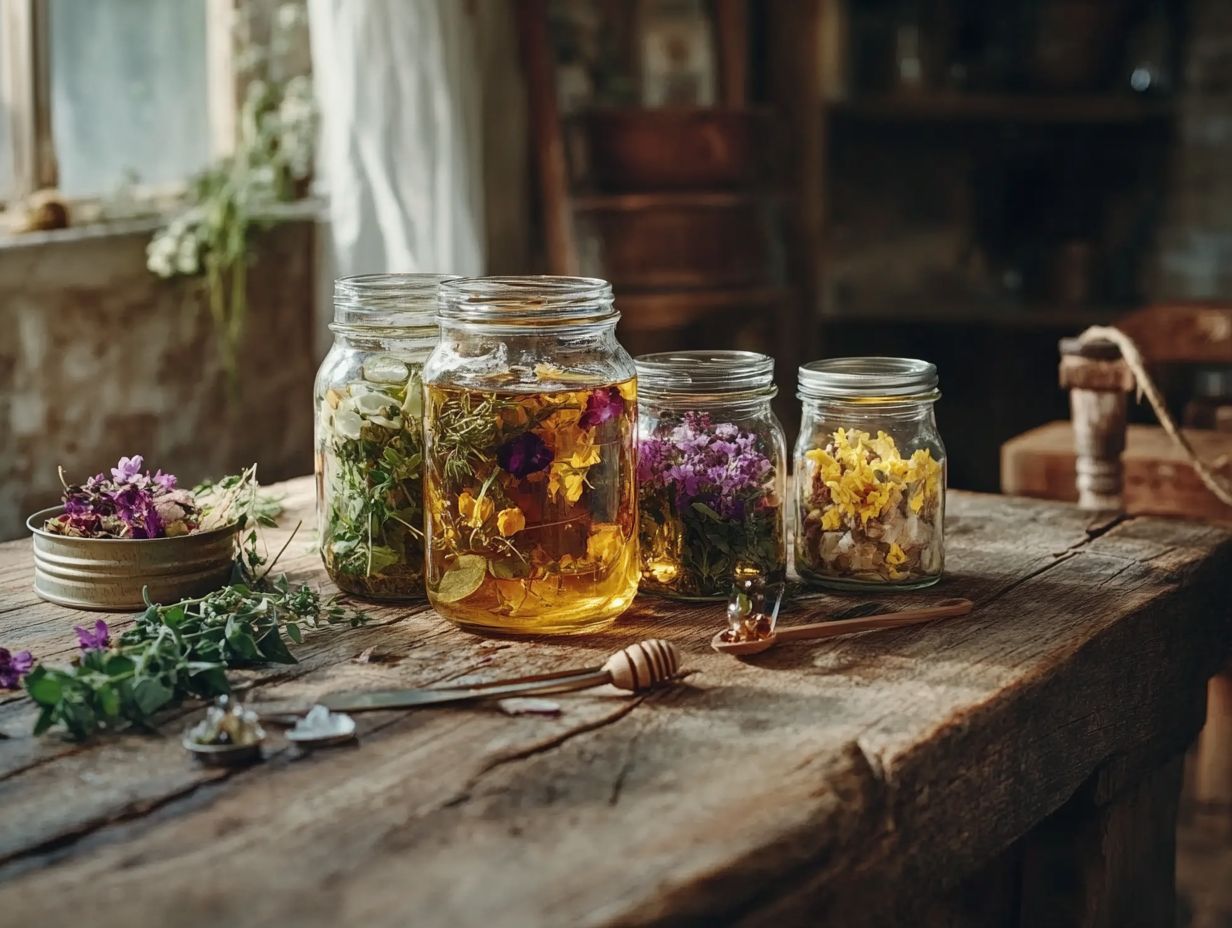
Formulating my own shampoos, conditioners, and treatments significantly reduces my exposure to chemicals while offering a luxurious experience for my hair. If you’re interested in creating your own beauty products, check out these DIY organic beauty recipes you can make at home.
Creating my own hair products fosters a deeper connection to what I apply to my scalp, encouraging a more mindful approach to beauty. For example, I can make a DIY shampoo using natural ingredients such as liquid chlorophyll and cocoa butter, which provides a gentle yet effective cleanse that nourishes my hair without stripping it of its natural oils.
Using conditioners made with shea butter or coconut oil allows me to deliver optimal moisture and shine, enhancing the vibrancy of my locks. Additionally, I can craft targeted treatments from essential oils or natural extracts to address specific concerns like dryness or breakage, ensuring my regimen caters to my hair’s unique characteristics.
By personalizing my hair care routine, I give the power to myself to create products that meet my specific needs while ensuring they are free from harmful chemicals.
Recipes for Body Care
Creating body care recipes at home allows me to enhance my overall skincare routine by providing nourishing and moisturizing solutions specifically tailored to my skin’s needs.
I find that body scrubs made from kitchen ingredients such as sugar, olive oil, and essential oils effectively exfoliate and hydrate, promoting the radiance and health of my skin.
Additionally, lotions and body oils crafted with natural ingredients ensure that my skin receives the moisture it craves while also defending against environmental stressors.
By following the guidance of a health coach or beauty editor, I can discover the most effective body care recipes that keep my skin feeling soft and protected.
Body Scrubs, Lotions, and Oils
I have found that DIY body scrubs, lotions, and oils can significantly enhance my body care regimen by providing both exfoliation and hydration, ultimately promoting skin radiance.
A simple DIY body scrub can be made with ingredients like sugar or salt mixed with coconut oil, which offers not only exfoliation but also deep moisturization for soft, supple skin. Additionally, homemade lotions crafted from shea butter and essential oils provide a luxurious feel while ensuring my skin receives health-supportive benefits.
By incorporating these recipes into my daily routine, I can offer ongoing protection and nourishment, leading to healthier skin overall.
I also appreciate how incorporating natural ingredients such as coffee grounds or oatmeal into a body scrub can elevate its exfoliating properties while enhancing circulation and reducing the appearance of cellulite.
For lotions, adding Aloe Vera or vitamin E oil provides soothing effects, making them particularly suitable for sensitive skin types. Furthermore, oils infused with ingredients like jojoba or lavender not only hydrate but also promote a calming aroma, enriching my overall skincare experience.
By exploring these various techniques and their benefits, I can truly transform my skincare routine into a rejuvenating ritual, utilizing the strength of nature for optimal skin health.
Tips for Storing and Using DIY Organic Beauty Products
Properly storing and utilizing my DIY organic beauty products is essential to ensure their effectiveness and longevity while maintaining their non-toxic integrity. I understand the importance of knowing the shelf life of ingredients such as cacao butter, coconut oil, and essential oils to preserve their quality.
For example, products containing water generally require preservatives or refrigeration to extend their usability. Additionally, I utilize dark glass containers to protect oils from light degradation, thereby prolonging their potency.
By adhering to these best practices, I can enjoy safer, fresher homemade beauty creations that continue to support my skin health over time.


